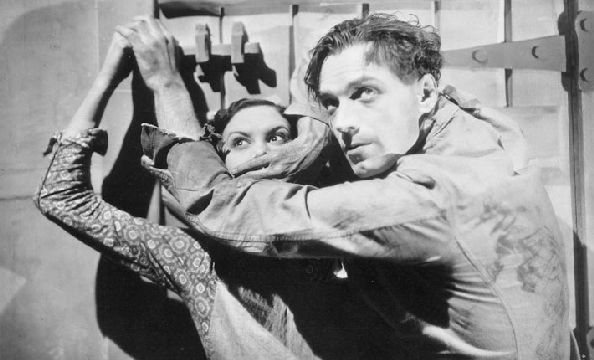A Cottage on Dartmoor (1929) 

Director: Anthony Asquith
Cast: Hans Adalbert Schlettow, Uno Henning, Norah Baring
Synopsis: Flashback story of an escape from the lonely, high-security Dartmoor Prison.
A Cottage on Dartmoor was something of a surprise — Anthony Asquith has never been one of my favourite directors, and the subject looked as though it would lend itself to the melodramatic, but this film is put together with incredible verve and imagination. Asquith’s enthusiasm is evident and he seems always to be constantly on the lookout for any shot or camera angle that will breathe life into the pedestrian plot — and nearly always succeeds. It’s only in the last third of the story that the film begins to unravel a little and fall back on conventional techniques.
Most of A Cottage on Dartmoor concentrates on the slightly odd young barber (Uno Henning — The Love of Jeanne Ney) who is obsessed with the manicurist (Norah Baring – Underground) in the salon where he works. At the outset of the film we know he has committed a crime because we follow his escape from prison and his arrival at the cottage where the object of his obsession now lives (with a baby and husband). Asquith relates all this with admirable efficiency and economy, and ingeniously connects the film’s present to its past with the woman’s startled cry of the man’s name when she spies him in her cottage. We then see the events that lead to this situation, and they are as compelling as they are routine. Anyone who has ever felt the pain of unrequited love will sympathise with Joe (the barber) and perhaps understand the reservations that hold him back from connecting with the woman he loves.
The short running time is down to Asquith’s economy of purpose — even though he does take a slight detour to show the winning over of a late 20s cinema audience to the talkies as Joe stalks his beloved and her new boyfriend. To illustrate the topics of conversation in the salon, instead of the mundane use of titles he shows images — of cricket games and tennis matches, etc and closes in on the rapidly moving mouths — to more succinctly deliver the message. When fellow workers argue over whether the woman will wed her new beau we see them both from opposite sides of the razor Joe is sharpening on a strop. Some of these touches are almost Hitchcockian and elevate the film to a level much higher than it really ought to be.
A Cottage on Dartmoor does lapse into typical silent melodrama in the last couple of reels, which is a shame, but the preceding hour is a gem of British film-making that is well worth seeking out.
(Reviewed on 2nd November 2009)
httpv://www.youtube.com/watch?v=ouy5a1dML2o
